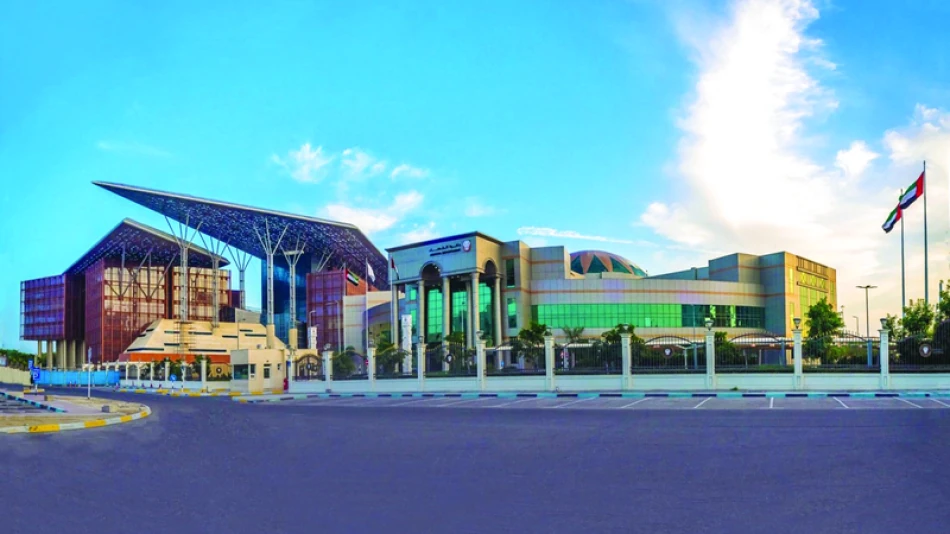
Family of Deceased Worker Awarded Increased Compensation of 250,000 AED by Court of Appeal
UAE Court Sets Major Precedent: Workers' Families Can Claim Beyond Islamic Blood Money
An Abu Dhabi appeals court has more than doubled compensation for a worker's family killed due to workplace negligence, ruling that Islamic blood money (diyya) does not preclude additional civil damages. The landmark decision increases the award from 100,000 to 250,000 dirhams ($68,000) and establishes crucial legal precedent for worker safety across the Gulf region.
The Case: Family Seeks Justice for Preventable Death
The worker's heirs—comprising a father, widow, and five minor children—initially sued the company and its manager for 10 million dirhams, alleging negligence and failure to implement adequate workplace safety measures. The deceased was the family's sole breadwinner, making his preventable death financially devastating.
A lower court initially awarded 100,000 dirhams, which the family appealed as insufficient given their material and emotional losses. The company counter-appealed, arguing that the 200,000 dirham Islamic blood money already awarded should cover all damages under Sharia law.
Legal Breakthrough: Dual Compensation System Upheld
Court Rejects Company's Defense Strategy
The Abu Dhabi Court of Appeal for Family, Civil and Administrative Cases firmly rejected the company's argument that Islamic diyya payments preclude additional civil compensation. This ruling aligns with established UAE legal precedent but reinforces worker protection in a region where such cases often face complex religious-civil law intersections.
The court emphasized that blood money "does not prevent the rightful party from completing compensation for other damages not covered by diyya," including both material losses and lost future earnings.
Comprehensive Damage Assessment
The appeals court recognized multiple forms of harm: the father's loss of care in old age, the widow and children's loss of financial support, and the broader emotional trauma affecting the entire family. This holistic approach to workplace death compensation represents a significant shift toward more comprehensive victim protection.
Regional Context: Gulf States Strengthen Worker Rights
This decision arrives amid broader labor reforms across the Gulf Cooperation Council countries. The UAE has implemented extensive workplace safety regulations and kafala system reforms, while Saudi Arabia and Qatar have similarly enhanced worker protections following international scrutiny.
Unlike purely secular legal systems where civil damages dominate, or purely Islamic systems where diyya might be exclusive, the UAE's hybrid approach allows families maximum recourse. This positions the Emirates as increasingly worker-friendly compared to regional competitors.
Business Impact: Higher Stakes for Employer Negligence
The ruling significantly raises the financial stakes for companies operating in the UAE's construction, manufacturing, and industrial sectors. Employers can no longer rely on relatively modest Islamic blood money payments to limit their exposure in workplace death cases.
Key implications for businesses include:
Enhanced insurance requirements likely emerging as companies seek protection against expanded liability. Safety compliance investments becoming more economically justified given higher potential damages. Foreign investors gaining confidence in UAE legal protections for workers and their families.
Looking Forward: Precedent with Broader Implications
This case establishes that UAE courts will take an expansive view of workplace death compensation, potentially influencing similar cases across the region. The decision strengthens the UAE's position as a jurisdiction that balances Islamic legal principles with modern civil protections.
For the construction and industrial sectors that employ millions of expatriate workers, this ruling signals that genuine safety investments—not just legal maneuvering—represent the most reliable protection against catastrophic liability.
The final award allocates 15,000 dirhams to the deceased's father, with the remaining 235,000 dirhams distributed equally among the widow and children, plus 4% annual interest until payment.
Most Viewed News

 Sara Khaled
Sara Khaled






